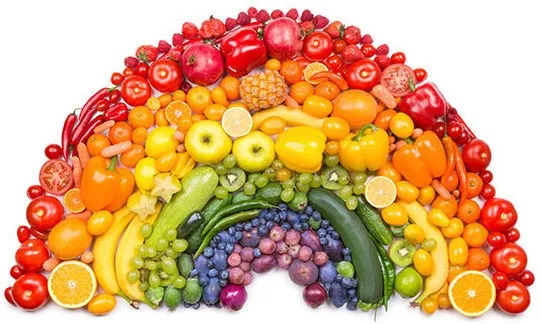Vitamins and Minerals: Do You Know the Importance of Each?
We often talk about macronutrients like carbs, proteins, and fats when discussing nutrition, but vitamins and minerals are equally essential for a healthy and balanced diet. They play a critical role in almost every bodily function. Thinking about that, we decided to create a guide to help you understand their importance and functions. Plus, we’ve included examples of foods and Fit Kitchen meals rich in each one. Let’s dive in!
Vitamin A
- What it does: Vitamin A supports eye health, enhances immune function, and combats free radicals with its antioxidant properties. It’s also essential for skin health, as it serves as a precursor to retinol.
Sources: Milk, egg yolk, and orange-colored foods like carrots and pumpkins.
Fit Kitchen Meal: Cajun Fit Chicken
B Vitamins
- What they do: B vitamins cover a wide range of functions, from cardiovascular and brain health to ensuring proper metabolic function. Vegans should consider supplementing with B12, as it’s primarily found in animal products.
- Sources: Eggs, milk, legumes, meat (especially for B12).
- Fit Kitchen Meal: Club Med Beef
Vitamin C
- What it does: Strengthens the immune system by neutralizing free radicals, acting as a powerful antioxidant.
- Sources: Oranges, peppers, kiwis, lemons.
- Fit Kitchen Meal: Bangkok Green Curry
Vitamin D
- What it does: Essential for strong bones and teeth by helping the body absorb calcium. It also supports brain health, the immune system, and muscle function.
- Sources: Salmon, tuna and the most important: sunlight! – Consider supplementation during winter months
- Fit Kitchen Meal: Salmon & Smash
Vitamin E
- What it does: Works as an antioxidant and anti-inflammatory agent, protecting cells and DNA. It also helps the immune system by promoting the production of T cells and supports skin health.
- Sources: Pumpkin seeds, spinach, olive oil, avocado.
- Fit Kitchen Meal: Mighty Muesli Overnight Oats
Vitamin K
- What it does: Plays a crucial role in blood clotting and helps prevent thrombosis.
- Sources: Leafy greens, cheese, eggs
- Fit Kitchen Meal: Chimichurri Beef
Zinc
- What it does: Boosts immunity, helps with wound healing, and aids in DNA synthesis. It also acts as an antioxidant by reducing inflammation.
- Sources: Meat, shellfish, legumes, seeds, and nuts.
- Fit Kitchen Meal: Tasty Thai Beef
Selenium
- What it does: Protects cells from free radical damage, supports brain health, and is vital for thyroid function.
- Sources: Brazil nuts, oysters, fish.
- Fit Kitchen Meal: Caribbean Coconut Prawns

- What it does: It plays a role in energy metabolism, bone formation, as it contributes to calcium absorption, and in the normal functioning of muscles and nerves. It also promotes relaxation.
- Sources: Bananas, chocolate amargo, spinach, chickpeas.
- Fit Kitchen Meal: Hail The Kale Caesar
Iron
- What it does: Iron is essential for cell function, DNA synthesis, and energy metabolism. It helps transport oxygen to muscles by promoting the synthesis of hemoglobin, the protein in red blood cells that carries oxygen throughout the body.
- Sources: Liver, beans, eggs, kale (Tip: Combine iron-rich foods with vitamin C for better absorption, such as pairing spinach with citrus fruits).
- Fit Kitchen Meal: Bangin’ Burrito Bowl
Calcium
- What it does: Not only is it crucial for bone health, but calcium also plays a vital role in blood clotting, nerve signaling, and muscle contraction. It’s the most abundant mineral in the body.
- Sources: Milk, yogurt, kale, sesame seeds.
- Fit Kitchen Meal: Mac & Gainz
Phosphorus
- What it does: Helps form and maintain bone structure and supports joint health.
- Sources: Chicken, milk, grains.
- Fit Kitchen Meal: PB Crunch Protein Pudding
Potassium
- What it does: Potassium is essential for the electrical conductivity of neurons, playing a critical role in maintaining proper nerve function. A deficiency in potassium can lead to muscle cramps, contractions, and even arrhythmias. Additionally, it is important for memory, concentration, and overall learning.
- Sources: Bananas, coconut water, tomatoes, and kale.
- Fit Kitchen Meal: Chorizo Sunrise
The Colorful Plate
Notice how the color of foods often indicates the presence of certain vitamins and minerals. That’s why it’s essential to have a colorful plate!
Save this guide and use it as inspiration the next time you’re planning your meals!

